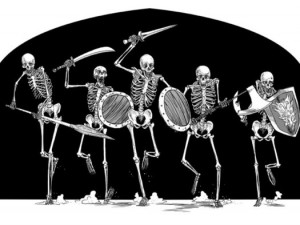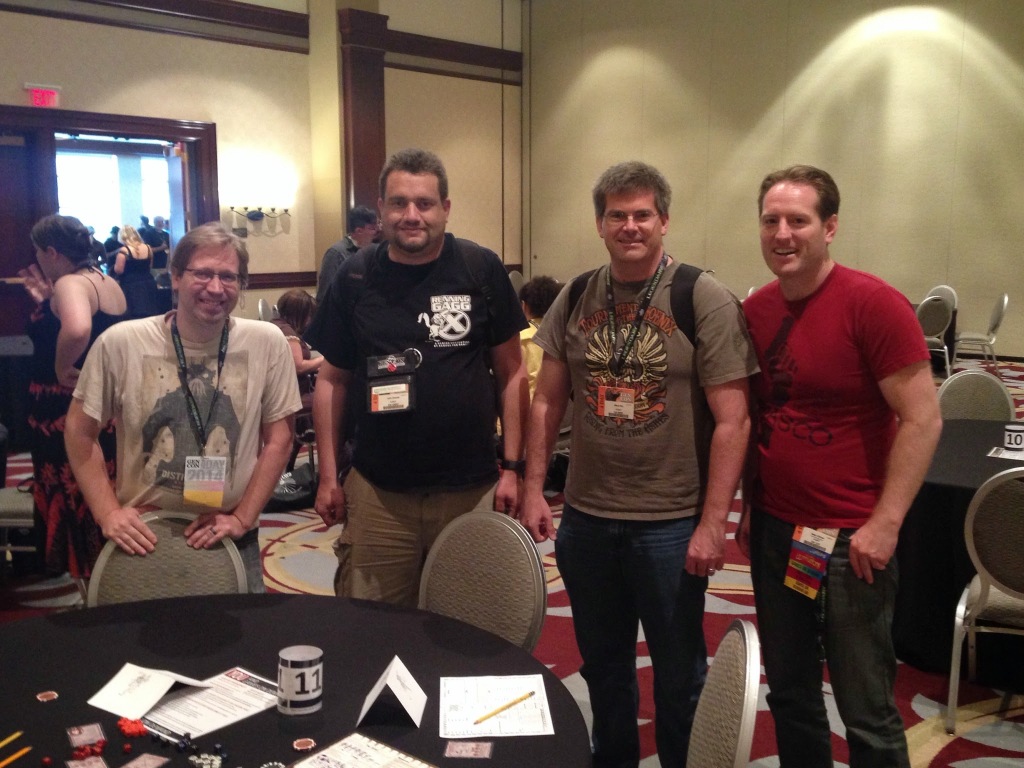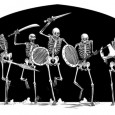 GM: Sean Nittner
GM: Sean Nittner
Players: John Kramer, Alan DeSmet, Steve Nix, Scott Harloot, Brian Habenicht, and Jesse Butler
System: Torchbearer
Module: Stone Dragon Mountain
Games on Demand was hurting really hard for two hour games, so when Ajit asked me if I could run Torchbearer in two hours I said sure. I mean, I had done it last year with Under the House, so why not do it now with Stone Dragon.
Except, Stone Dragon starts with a perhaps prolonged social environment and I was worried we would spend the session there, so I just skipped it. Lets start the game at Location 2, The Mountain Ascent.
Also, I didn’t bother going over any of the rules. I just told people to read their beliefs, instincts, and pick a goal.
Speed Turns
Part of moving quickly meant less note taking for me. Suffice to say the adventurers took to the mountain like rocks. They clambered up it, got lost, dug up dead adventurer to take their supplies, hunted for game, and then ended with a fight!
Thoughts on the Game
I learned some interesting things running this game.
First, the base camp location is great, but it shouldn’t be first. Torchbearer starts best with action and the base camp takes a while to wind up to action. We’re moving stuff around.
Teach Torchbearer just a bit at a time is doable, but there are a few challenges.
- Players instinctively want to find answers on their character sheets. But if they can’t read a character sheet, time spent deciphering it pulls focus away from the game.
- As a GM I want to be fair to new players. I can think of ways for them to gain advantages (via using traits, creating supplies, describing their actions to leverage the fiction in their favor) when facing challenges and I feel a sense of obligation to give them their best shot. However, often doing so means introducing every option they could take, which slows the game again. In particular, if not told, nobody would ever think to gain checks…but introducing that mechanic when you’re not in the perfect situation (oh, you can’t succeed in this test anyway, why not gain a check to make this a bit harder, it’ll help you later) can send players into dice outcome probability calculations mode.
- Telling someone, no you can’t use your Clever trait to help someone else is a bummer, especially when they they are trying to help someone who is skilled and they don’t have any of the appropriate skills to help with, so you don’t even have an alternative to offer them.


Isn’t that a pretty essential skill for Torchbearer anyways? I’d think that would be something you’d want to introduce really early?
Yes and no. Mustering dice is great, but Torchbearer follows the “No Weasels” rule of Mouse Guard that once someone says they do a thing, they are doing the thing and they make the test, regardless of whether or not the dice are in their favor.
My inclination is to always lead first with the fiction, wait till we reach a point of uncertainty, and then go to dice, regardless of whether or not the test is a favorable one.